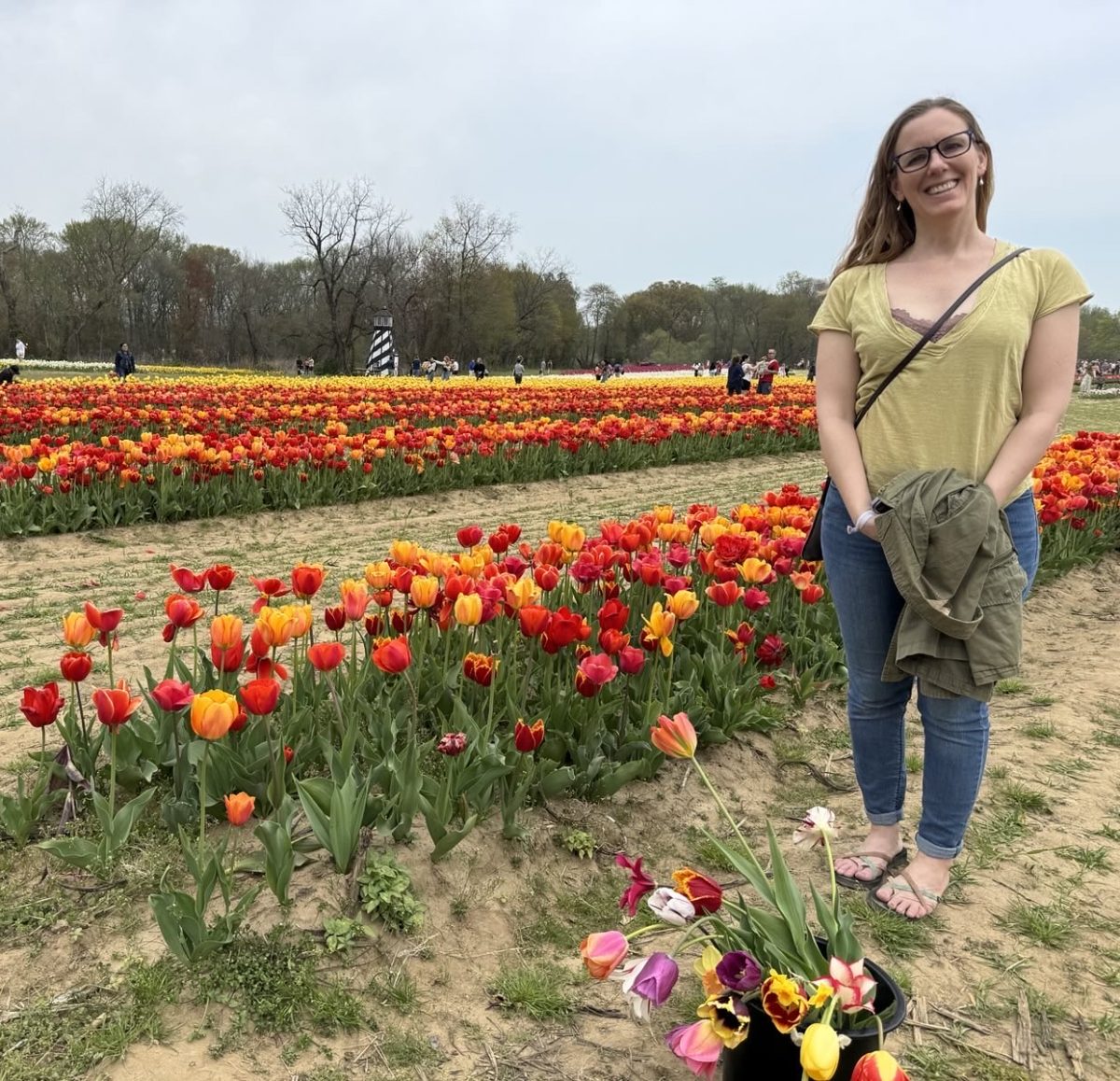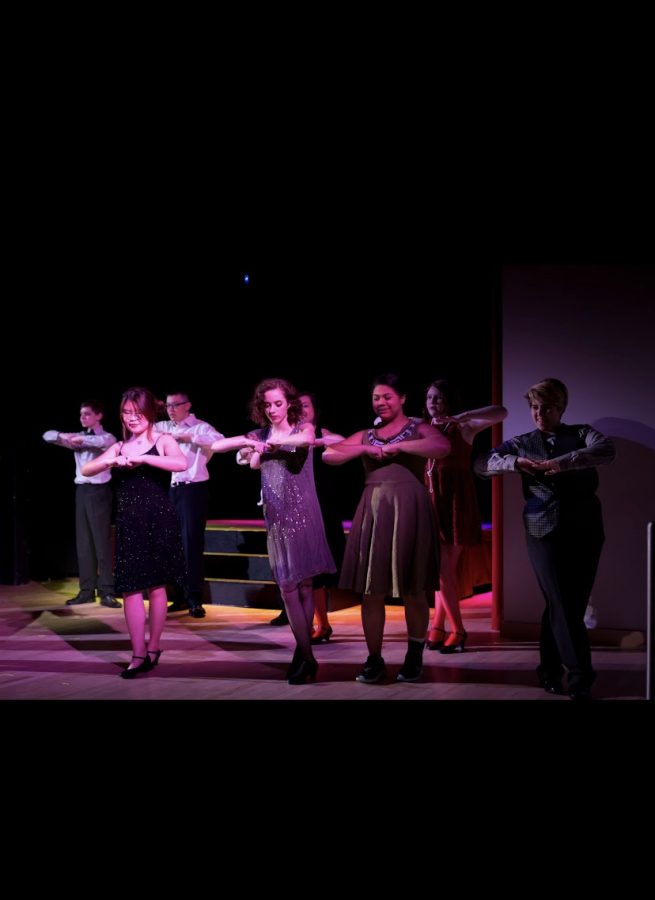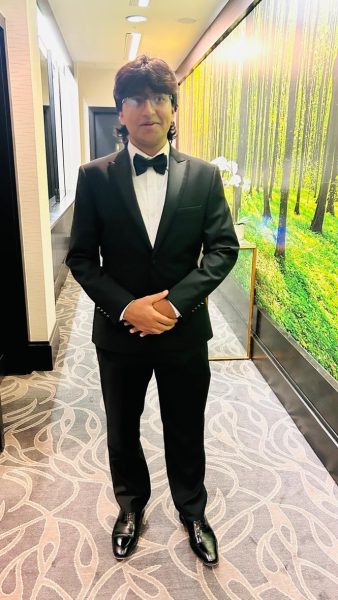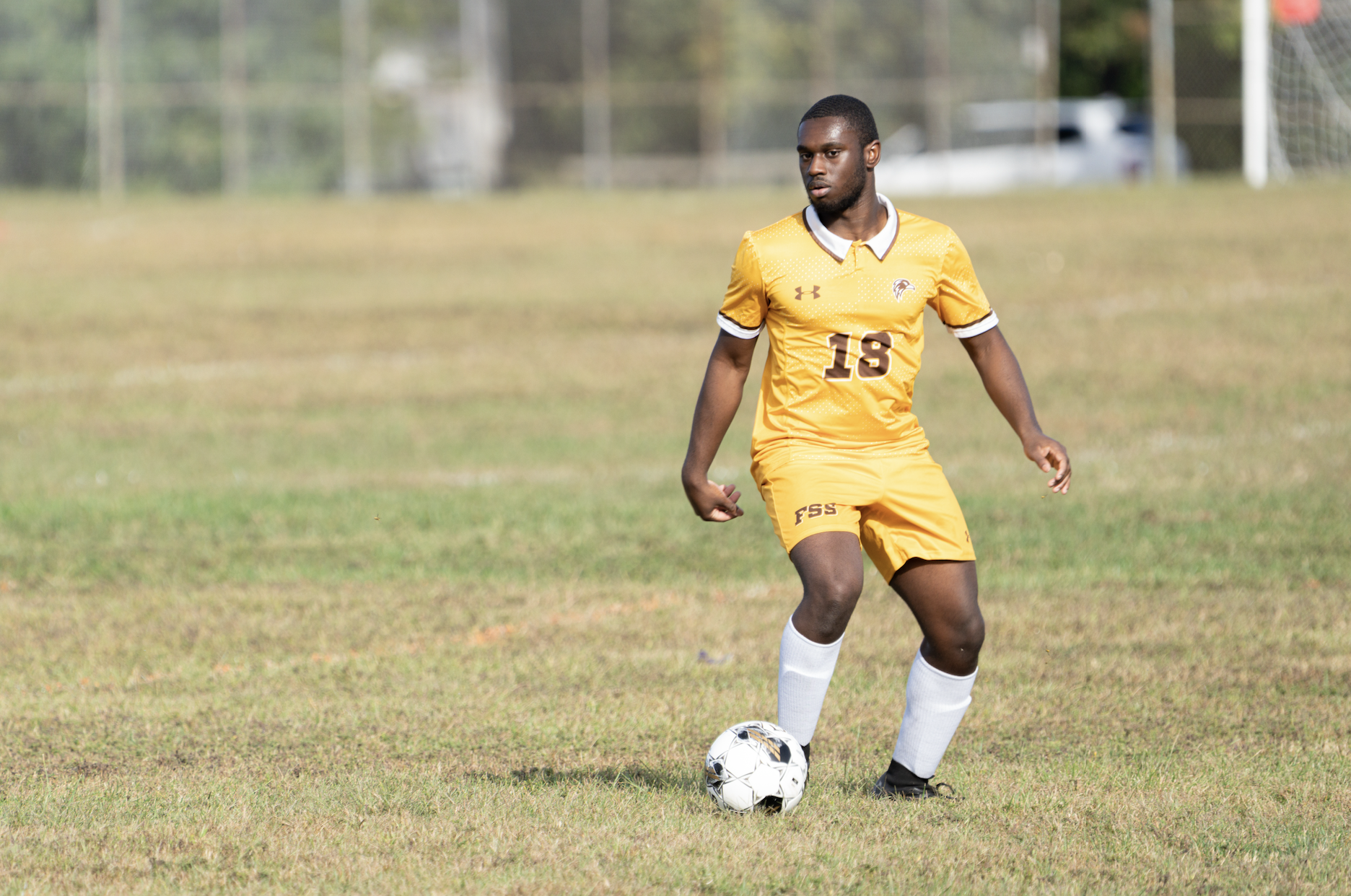The Ensemble of “Chicago”
May 23, 2019
The ensemble is an important yet overlooked part of every theater production. They play multiple roles, provide entertainment and comedic aspects for the audience, and provide support to the leads as well. The ensemble of Friends Select’s Chicago consisted of 18 students with lines, songs, and choreography. Five of those members, Dasha Sotnik-Platt (‘19), Olivia Maltz (‘20), Arley Johnson (‘20), Quinn Doran (‘19), and Olivia Shuman (‘21), spoke to The Falcon about what it’s like being in the ensemble.
The first topic they discussed was if they signed up for a small part, and why–or why not.
“I have always signed up for a small part,” Dasha said. “I don’t love memorization, and I don’t really do plays for the actual performance part of it; I do it because I love the community that comes with being in a play, and I love seeing all the stuff that goes on backstage in a performance. So being up on stage, myself, isn’t really my priority.”
Maltz answered similarly: “I did sign up for a small part partially because I have a conflicting schedule but I still wanted to be a part of the musical, and I did want to perform without memorizing a lot of lines.”
Arley had a slightly different answer for this question. He said, “I signed up for whatever part they wanted me to have, so had it been Amos or not, or any ensemble member, I was chill with that.”
“Yes. I have terrible stage fright and I don’t like attention. So a small part is perfect for me. I get to enjoy being a part of the lay without being the focus all the time.” Quinn stated.
Shuman responded, “I did not audition for the ensemble, but I don’t consider being part of the ensemble a small part, either.”
The next topic touched on was how much time and effort they put in with practicing at home instead of just on stage.
“To be honest, I practice most often in rehearsal before my scenes or during my scenes. I try to practice at home; I aim for three times a week; I normally end up around one or two times a week.” Dasha answered.
Maltz, once again, had a similar response to Dasha, saying, “I really don’t practice at home that much just because I only have a couple of lines–mostly it’s songs, but because Chicago is so famous, I already knew the songs. I do watch the dancing videos at home.”
On the other hand, Arley and Quinn had different answers in response to the question. Arley said, “I practice at home a decent amount; I practice at home more for the singing than me getting shot and the dancing. I didn’t even have to really memorize my lines–I had them memorized, but that wasn’t a thing I had to do.”
Quinn also practices often at home, but for different purposes. “I practice almost everyday, although I don’t tell my counterparts/other ensemble members. I’m not a very good dancer so I try to really practice the movements during and after practice.”
Shuman responded in a medium ground: “I don’t really plan set times to practice; instead, I practice whenever I can (mostly in my room and at school).”
When asked if they enjoy being part of the ensemble, the overall response was that, while it proved to be challenging, the experience was worth the effort. Maltz said, “It’s not like you’re forgotten about because you’re still on stage, and some of the focus will be on you.”
Quinn agrees, adding, “Ensemble is very fun but can be very challenging sometimes. We are tasked to remember hard dance moves and perform with high energy while singing. While it is hard, learning these skills is actually very rewarding.”
When asked what being part of the ensemble meant to them, Dasha answered with two definitions. “The definition-definition is being part of the group of characters that are not a named character, and while I am a named character in some of the scenes, in many I am part of the ensemble and just in the background, backup dancers, et cetera. More emotionally, it means I get to be part of the play, without having to have a major role and be in the spotlight.”
Maltz agreed, stating that “being part of the ensemble means that I’m mostly one of the background dancers, background singers, and I personally love it […] this allowed me to be a part of the play.”
Arley mentioned it meant you were on “equal footing with everyone else.”
Quinn dug into her own definition of the ensemble, saying, “I joined the play because I think it would help me get out of my comfort zone. I don’t really dance or sing but the play has managed to reveal some skills that I didn’t know I had. Ensemble has really developed my confidence and really helped me take control of how I move my body and represent myself in the real world.”
“It’s really interesting being a part of the ensemble,” Shuman says. “The ensemble is both one character altogether and a multitude of different characters. As in, the ensemble members generally have the same actions and reactions in a scene, but you can really make the way you show those actions your own.”
“I mean, everything is difficult,” Dasha responded to the topic of how difficult it was to be in the ensemble. “It’s a play! You have a job, it’s a job, you do it. Sometimes there are songs that are really easy or you’re just there for backup singing, like in [My Own Best Friend], we’re just there to provide backup vocals–that’s easy! Then, in songs like Cell Block Tango, there’s a lot of complicated dance moves and complicated backup singing that we have to do that counters the dancing, that at times I would say is even more difficult than what the leads are doing. So it’s a job, you do it.”
Maltz, Arley, and Quinn agreed that the dancing appeared to be the hardest part of the show, but agree that the show went well. Quinn adds that “if you have confidence in your [dance] movements, it is really fun.”
The sixth topic was about what Chicago would be like without the ensemble. The answers, overall, were in favor of the ensemble as the story and show would lose some depth without the cast. Dasha, Maltz, Shuman, and Quinn all agreed that the ensemble provided something to the show, whether it be clarification on a scene or a push for the storyline. Arley reacted with amusement, saying “That’d be funny! I’d love to see that; it’d be interesting, to say the least.”



































